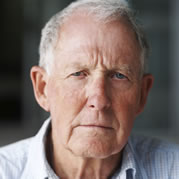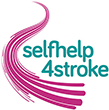Now you will have worked out what you can do and how others can help you. Lets hear about how others have got on.
View text alternative

Everyone said my speech was fine after my stroke but I was not convinced. I thought I was slow, boring and I just hated the way it sounded. It is very easy to just avoid speaking, after all I am retired and didn’t have to stand up in front of an audience. Until, the family decided to throw a big birthday party. Something clicked and I decided I would give a speech and vote of thanks to the organisers. It did involve a lot of rehearsal and time hiding away in the spare room. What it made me realise was that I notice the changes in my speech more than anyone else. It seemed to go down well and after all everyone is on your side. I was glad I fought the fear.
View text alternative

I used to be very sociable. I loved a good gossip and meeting up for coffee with friends. But after the stroke, everything just felt irrelevant and I had no patience for meaningless chatter. I think some people felt awkward around me and it all felt wrong. Thinking back I probably was very tired and found the concentration difficult. Luckily I did have a heart to heart with one of my close friends in the group and she helped me work through. The most important thing was not to give up and give yourself time to take back control
View text alternative

I have heard people comment.. “But she looks so well”. I think that is the problem, no one can guess you have difficulty speaking until you open your mouth. And then the reaction!
I used to get very angry that people were ignorant about strokes and the way they can affect you. Now I have found a way to calmly explain that I have had a stroke and sometimes my speech gets muddled. It seems to break the ice.
Key points
Sometimes we can be too self critical and that can stop us trying.
It does take time to adjust, but don’t be too hard on yourself.
Don’t let other people put you off.



